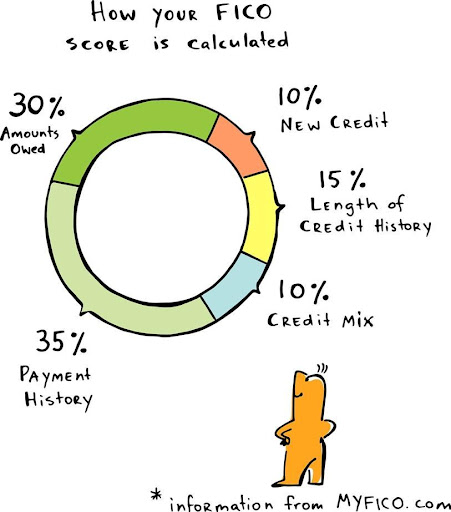Credit Scores Explained
Categories: Blog Posts
Understanding credit scores is critical in your journey as a real estate investor.
Lower credit scores mean you might not get a loan you’re applying for. Or you might have to put more money into a deal. If you have a bad credit score, you’ll typically see higher rates or terms which make dealing with the market frustrating.
If you’re a real estate investor or even business owner, it’s okay to use your personal credit for your business. But it’s absolutely critical for you to understand how credit scores work.
Using personal credit works, but you want to be careful not to run it up to where you’re handicapped with higher rates. Higher rates quickly turn into higher down payments and costs overall.
You want to build your credit score so it works for you instead of against you.
How Credit Scores Work
Credit card usage is the leading reason we see for low credit scores.
Surprisingly, the amount owed doesn’t affect the score nearly as much as the ratio of usage compared to the available balance.
For example, if two people owe $1,000 on their credit cards, you might expect similar credit scores since they owe the same amount. But that isn’t how it works!
Their FICO credit score will reflect the difference in their credit limits.
Here’s how it works:
Let’s say Person A has a credit limit of $2,000, resulting in a 50% credit usage ($1,000 owed divided by $2,000 credit limit). In contrast, Person B owes $1,000 but has a credit limit of $5,000. Person B then has only a 20% credit usage ($1,000 owed divided by $5,000 credit limit).
FICO and other credit-rating agencies consider credit usage ratios when determining credit scores. They want you to use your credit cards, but not too much. Therefore, FICO will typically raise your score when you have usage between 20%-30%.
This can get complicated, and we recommend moving everything to a business credit card. Keeping your personal credit score separate from your official investing credit can save significant stress if your personal score dips.
If you do choose to continue using your personal credit for your business, it’s important to make sure you understand how usage affects your score.
Read the full article here.
Watch the full video here:



